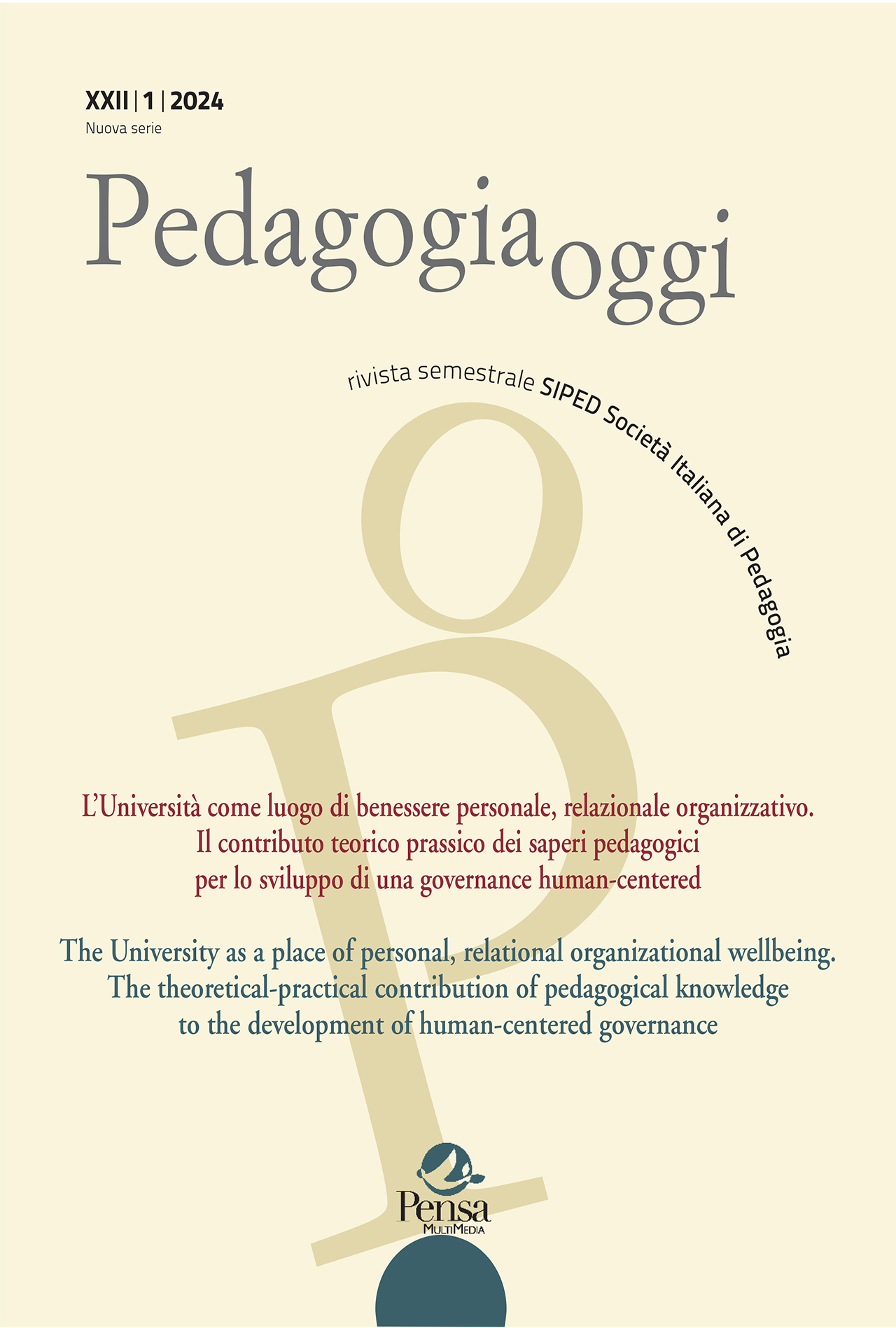Renforcer les contextes non cognitifs et connectifs pour développer l'intelligence collective dans une classe de l’école secondaire inférieure
DOI:
https://doi.org/10.7346/PO-012024-20Parole chiave:
Collective intelligence, training, non-cognitive skills, connective contexts, learningAbstract
Les problèmes qui surviennent en milieu scolaire sont complexes et impliquent presque toujours plusieurs parties, à tel point que toute décision prise pour résoudre un problème critique doit être adaptative et, en même temps, tenir compte des différentes cultures, connaissances et systèmes de valeurs de toutes les parties impliquées. La solution d'un problème et les connaissances qui en découlent sont donc le résultat d'une expérience pratique et d'une collaboration, d'une volonté de raisonner dans un groupe appelé intelligence collective (Heylighen 1999), plus efficace que le raisonnement d'un seul individu (Forsyth, 2006). L'intelligence collective se développe dans des contextes conjonctifs, où les sujets qui agissent ont la possibilité de pratiquer des compétences qui favorisent la connexion. Le développement de compétences non cognitives est connu pour favoriser la collaboration, l'interaction et l'apprentissage social au sein d'un groupe (Heckman, Kautz, 2014). L'objectif de cet article est de comprendre comment l'écriture collective et les compétences non cognitives explorées peuvent contribuer au développement de l'intelligence collective dans une classe du premier cycle du secondaire.
##submission.downloads##
Pubblicato
Fascicolo
Sezione
Licenza
Copyright (c) 2024 Giuseppe Liverano

TQuesto lavoro è fornito con la licenza Creative Commons Attribuzione 4.0 Internazionale.




